Hammer Time: The County Auction
Have you ever dreamed of owning a big red fire truck? Well here’s your golden opportunity.
Counties, cities, municipalities and parishes throughout the country get rid of their surplus government cheese through auctions. Police cars, fire trucks, commercial lawn mowers, dump trucks, confiscated merchandise, and most everything you can find inside a modern office are available for bidding.
The trick is to know when to bid enough.
Your success in large part depends on two things. The first is experience. Do you know what to look for when buying a Kubota Box Blade? Do you even know what one is? As someone who has been a part of thousands of auctions as both a buyer, seller, and member of the auction staff… I see tons of people buy ‘stuff’ that they simply know nothing about.
Why? Because they get caught up in the moment. They see a tractor they always wanted and decide that the seductive auction chant asking for a seductively low number is all the influence they need to make a bad decision. There is a ‘mob mentality’ that goes with nearly all large public sales that makes people consider buying things that they normally wouldn’t even consider under a regular retail setting.
Therefore, start with the knowledge that the auctioneer is paid by the county. Not you. His job is to make money for the county. So if you have excessive cash flow and want to find a quick way to donate it without recourse, a county auction is a great way to do it. Just remember that you will need to find a place to store the parade gaiters and the twenty-seven printers wrapped in cellophane.
The second ingredient to your success will be something called, “asymmetric information”. You need to figure out things that other attendees simply don’t know.
Let’s say you are simply going for a specific motor vehicle. You should start by visiting the sale early during the ‘preview’ time which is the day before the sale.
Bring four things with you. A ‘heavy duty’ battery jump box, an OBDII scanner, starter fluid, and someone who can assist you with the constant testing of the vehicles. You need someone that will help you inspect the vehicles and pass the time. Preferably someone who has a healthy level of experience working on and inspecting vehicles.
Some folks will inventory each vehicle’s major defect before the sale (bad engine, trans, parts removed, salvage, biohazard). But the overwhelming majority just let the tires go flat, the batteries go dead and the history to remain a mystery. Start unraveling the mystery by putting that jump box onto the battery. Try to start it up and see what happens.
If it turns over… great! Rev it a few times to see if there is any lower engine noise or obvious issues. You may find that the vehicle has old gas in it. In which case it may idle a bit funny or die off. Don’t be too alarmed if this happens. But be persistent with trying to get it in a normal idle mode.
If it idles fine and the check engine light remains off, then do the usual things you would do when testing out a vehicle. Put it into gear. Hold the break while accelerating (emergency break helps if you’re new too this). Test out the steering gear by shuffling the wheel to either side while testing for noise, Check for obvious leaks in the engine, chocolate milk on the radiator cap (blown head gasket), check out the a/c and heat, tire tread, interior leaks, oil, coolant, and tranny fluids …you need to spend a lot of time with these vehicles to see if they’re going to be worth your money.
If you are at a sale where a lot of vehicles are listed as ‘True Miles Unknown’, don’t be concerned. The county and auction company were too damn cheap and lazy to authenticate the mileage. This isn’t much of an issue with most Ford vehicles which are analog in the first place. But I see tons of ‘TMU’ vehicles these days along with ‘salvage’ vehilce, simply because most surplus units are used as parts cars after their time on the road. Not because anything dire happened to them.
A wreck is a wreck. But don’t be too concerned about bidding on a ‘salvage’ vehicle if it’s missing the headlights and a few other minor parts. Some of my best deals came from acquiring those vehicles.
If you’re not in the market for a police interceptor, your next stop will either be a vehicle owned by a county official… or a truck.
The trucks usually have hard lives. Especially if they’re older commercial trucks. If you don’t know much about older trucks don’t bid on them. Pre-1996 trucks don’t have OBDII diagnostics to make your life easy. You would be better off renting a truck when you need one at the Home Depot.
County official vehicles are a far different story. In almost all cases you will be looking at a generic midsized car from the days when Detroit amortized out their less competitive models. The bright side is that these vehicles are often maintained quite well and don’t have near the record of stress and abuse of the former police cars.
Find the few that pass your muster. Take down the VIN’s and give a call to the government’s maintenance department. Each one will keep a record of what’s been done to a vehicle and why.
Keep it to no more than a few vehicles… and you will be surprised about what you find. I’ve had police vehicle vehicles that were given brand new front suspensions AND factory engines, only to have been mothballed within a year of their replacement. You may find that the car you’re interested in was the mayor’s car. Or the financial planner’s vehicle. You may also find that the vehicle has some chronic issue that makes it a no-no nadir. Do your research and be extra nice.
Congrats! You now know more about these vehicles than 99% of the public. Good luck!
More by Steven Lang
Latest Car Reviews
Read moreLatest Product Reviews
Read moreRecent Comments
- ToolGuy TG likes price reductions.
- ToolGuy I could go for a Mustang with a Subaru powertrain. (Maybe some additional ground clearance.)
- ToolGuy Does Tim Healey care about TTAC? 😉
- ToolGuy I am slashing my food budget by 1%.
- ToolGuy TG grows skeptical about his government protecting him from bad decisions.



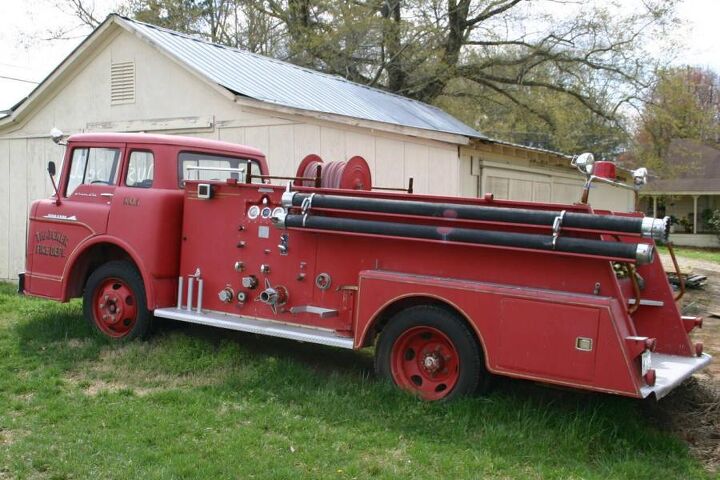
















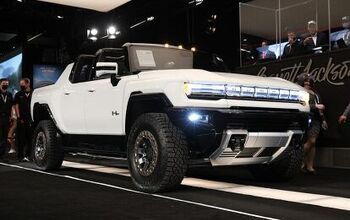
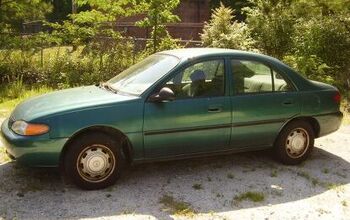
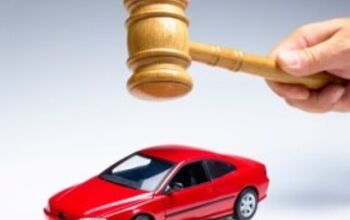
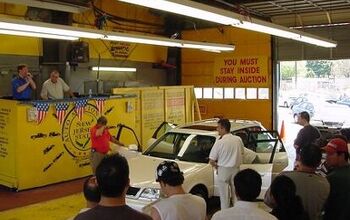




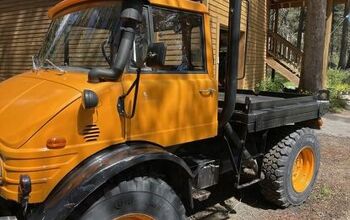

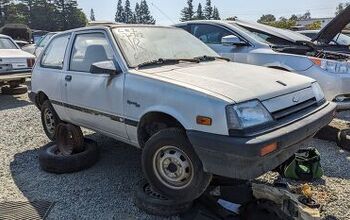



Comments
Join the conversation
.......once old fire equipment gets past the stage where even small volunteer services don't want them, even meticulously maintained units become a hard sell. All but the most ardent collectors eventually run out of safe storage for these behemoths. Their only hope, as Steve says, is to find a home with some spur-of-the-moment bidder, who will almost certainly end up with a serious case of buyer's remorse.
An acquaintance of mine has a 1947 American LaFrance Fire truck which was restored by Ferrar Fire Apparatus (V12 Continental engine, two sparkies per cyl.). It was in pretty dusty condition with surface rust when found but cleaned up nicely. Of course, he is in the south. Less difficult to drive than you might think. I hope my hometown never gets rid of its old trucks. One is a Ford, 1940s, very nondescript, and the other is a 1950s Mac. I wish they'd get the Mac up and running, would be great public relations. But since they can't fix the lighting on the highway outside of town and the airport is falling to pieces, I'm not holding my breath! As for old detroit iron as official gov't. vehicles, I remember the days when some agency around here had a fleet of K-cars long after they had more or less disappeared into the realm of bad memories. I can't see how they could have auctioned those off!